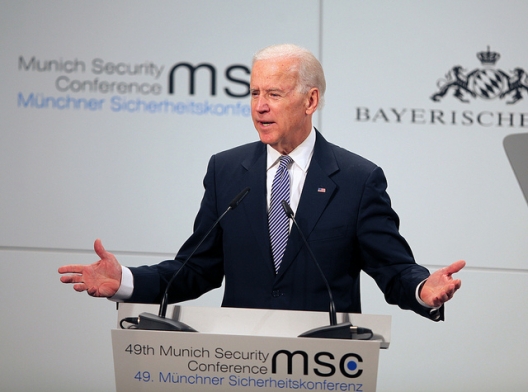 In recent decades, many European states have largely outsourced their security to the United States, which provided a defensive umbrella and protected global trade routes vital for European commerce and energy supplies. . . .
In recent decades, many European states have largely outsourced their security to the United States, which provided a defensive umbrella and protected global trade routes vital for European commerce and energy supplies. . . .
As a result, many European countries have grown out of the habit of thinking in hard, strategic terms.
But Russia’s recent efforts to force Ukraine and Armenia into abandoning Europe should be a reminder that we are not living in a world ruled by accepted international norms, as many Europeans believe.
The savage killing in Syria is proof, too, that there is no such thing as an “international community” that would intervene when the going got rough.
In recent years the Obama administration has used the Munich conference to assure Europeans that America’s pivot to Asia doesn’t mean abandoning Europe and the Middle East.
And for a time, Europe chose to believe this. Enhancing its foreign and security posture didn’t score high on the agenda while the Continent was fending off a financial meltdown. This year though, with the euro crisis seemingly contained, it might be the right time for the United States to change script.
To be clear, further American disentanglement from the Middle East is not good for the region, or for the West as a whole.
But if this is where the United States is heading — as many experts fear — it would be better to challenge the Europeans with some frank talk in Munich.
The American delegation might say: “The Middle East needs a strong outside stabilizer in order not to explode or become a large ungoverned space. But we don’t want to own this region anymore, and strategically, it is much more important to you than to us, given our increasing energy independence. So prepare yourself to take over in five years or so. Because we will reduce our role to what is absolutely necessary. We will keep the Russians out, we will keep the Iranians down by preventing the bomb. But for the rest we want Europe to get in.”
That would at least generate a real debate in Munich about what Europe can and should do to help stop the current trajectory of Western decline and to help shore up a liberal world order, which benefits an overwhelming majority of people worldwide.
Clemens Wergin is the foreign editor of the German newspaper group Die Welt and the author of the blog Flatworld.
Image: Vice President Joe Biden at the 2013 Munich Security Conference (photo: Department of State)
